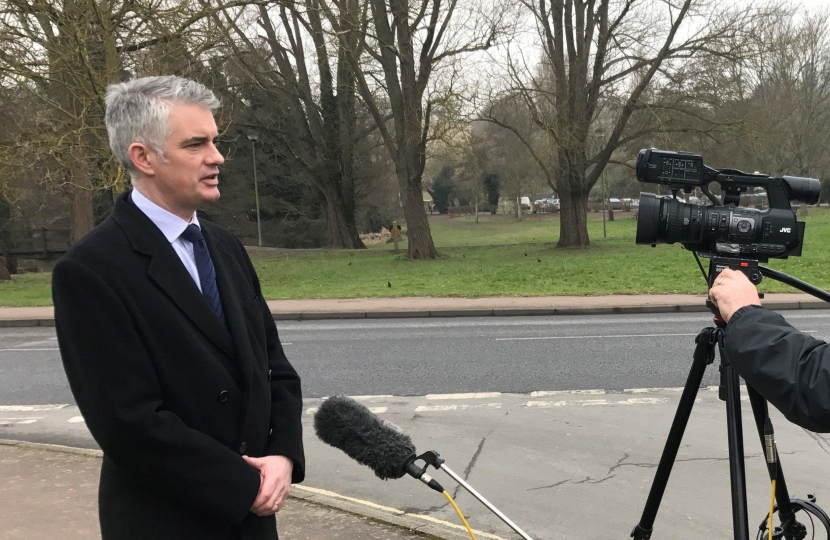
I was pleased to see that Sudbury in Bloom have organised a family daffodil bulb planting event for this Saturday. It is a reminder of how things have changed somewhat in relation to the timing of the annual Parliamentary pageant that is the Budget financial statement. Budgets used to be in the spring when daffodil bulbs were blooming into a delightful yellow abundance; our Chancellor of the Exchequer Philip Hammond decided to hold his Budgets as the daffs are being planted.
That said, whatever happens to the timing side of things, the backdrop to the Budget is unchanged. On the upside, we continue to enjoy extremely low levels of unemployment, the lowest since the early 1970s. A record number of people are in work. The huge deficit we inherited in the public finances in 2010 – the largest since the war – has fallen by around three quarters as a percentage of GDP. And contrary to popular perceptions of the rich paying less tax, in fact the ‘tax gap’ (which measures our success in tackling tax avoidance) is at a record low. Finally, this resilient economic growth has helped to provide the funds to protect spending on the NHS and schools.
On the other hand, whilst wages are raising and the public sector pay cap was recently scrapped, in common with many western nations we have seen a stagnation of ‘productivity’. That is, our output per head has not risen much since the 2008 crash, a global phenomenon but one which has strong national ramifications – if we do not increase productivity, wages cannot rise sustainably over the long term. And, yes, in order to reduce our deficit public spending has had to take a hit in significant areas.
This has been the backdrop to successive budgets – falling unemployment; a declining deficit (but not a vanishing one); impressive economic growth in contrast to other nations but with persistently weak wage and productivity growth alongside it. And this Budget was no different: much to celebrate, but as always, both positive and negative news. It was disappointing to see that growth forecasts for the immediate years ahead have been downgraded. However, it was extremely pleasing to me that the Chancellor was able to confirm that overall debt is finally set to peak and actually start falling as a share of national income.
That’s why, overall, I remain immensely positive and believe that we should be confident about our future. Despite a testing political and economic context, we were able to confirm that our debt is finally going to fall – that we will not be taking the easy route of billing the next generation for our largesse – and yet, that we were able to help businesses and families across a range of areas.
The Chancellor announced £6.3 billion of new funding for the NHS to improve A&E services and reduce waiting times. He froze fuel duty for the eighth year in a row, saving the average motorist £160 a year. There was a further £2.3 billion of support to businesses to reduce the burden of business rates, a key priority for me given the number of firms in South Suffolk who struggle with this archaic, arbitrary tax. For those in work we confirmed that we would cut income tax by increasing the personal allowance to £11,850 and the higher rate threshold to £46,350, in line with inflation. Finally, we scrapped stamp duty for first time buyers.
To do all that whilst keeping control of the public finances is no mean achievement. Hopefully the Chancellor has sown the seeds for an economy in bloom in the challenging times ahead.
Published in the Suffolk Free Press.
